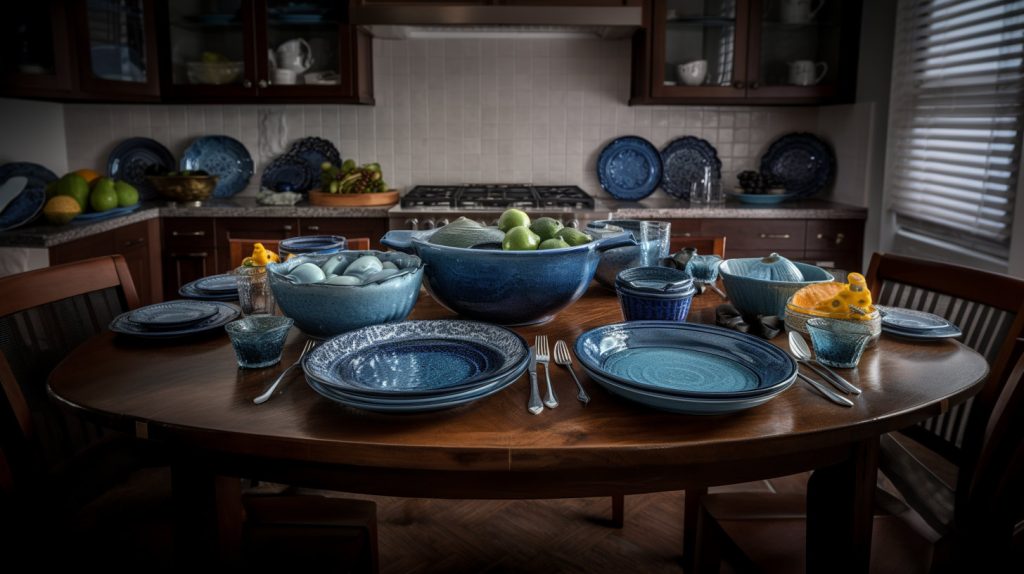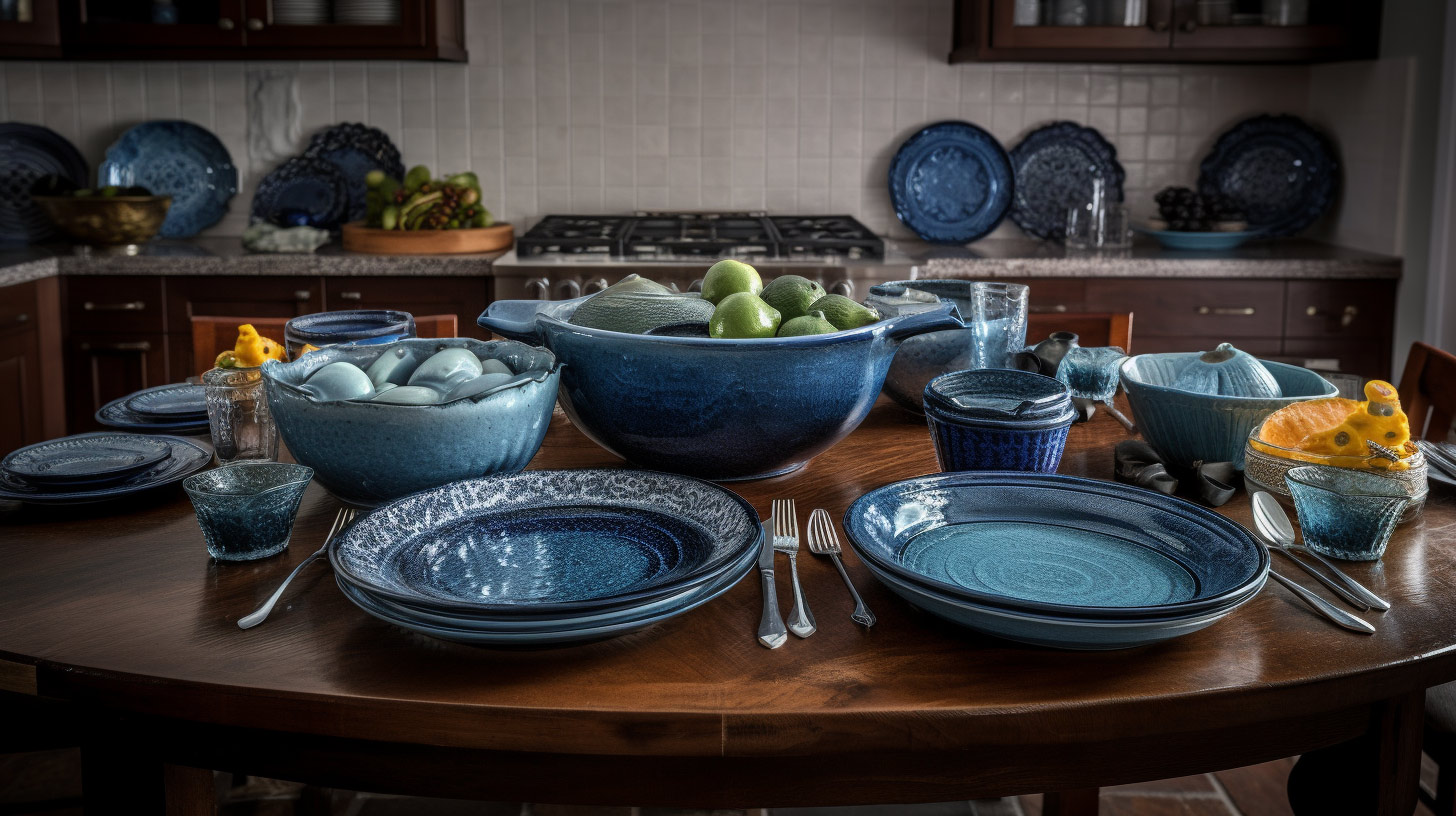When it comes to choosing cookware for your kitchen, health considerations are of paramount importance. Two popular options in the market are ceramic and granite cookware. In this article, we will explore the pros and cons of each, comparing their health benefits to help you make an informed decision. So, which one is better for your health?
Is granite and ceramic same?
Granite and ceramic are not the same. They are different materials used in the production of cookware.
Ceramic cookware is made from clay that is hardened by heat. It is typically coated with a non-stick surface and is known for its versatility and even heat distribution. Ceramic cookware is often free from toxic substances like PFOA and PTFE, making it a popular choice for health-conscious individuals.
On the other hand, granite cookware refers to cookware that has a granite-like coating applied to a metal base. This coating is designed to provide a non-stick surface and durability. Like ceramic cookware, high-quality granite cookware is also typically free from harmful chemicals.
While both types of cookware offer non-stick properties and can be considered for healthy cooking, they have distinct differences in their composition and manufacturing processes. Ultimately, the choice between granite and ceramic cookware will depend on individual preferences, cooking needs, and considerations for health and durability.

Understanding Ceramic Cookware:
Ceramic cookware is made from clay that has been hardened by heat. It is known for its non-stick properties and versatility in the kitchen. Here are some key points to consider:
1- Non-Toxic and Chemical-Free:
Ceramic cookware is often free from toxic substances like PFOA and PTFE, commonly found in traditional non-stick coatings. This makes it a healthier choice for your cooking needs.
2- Heat Distribution:
Ceramic conducts heat evenly, allowing for consistent cooking and reducing the risk of hot spots. This feature can help preserve the nutritional value of your food.
3- Durability:
Although ceramic cookware is generally durable, it can chip or crack if mishandled. Ensuring proper care and avoiding sudden temperature changes will extend its lifespan.
Exploring Granite Cookware:
Granite cookware is made by applying a granite-like coating to a metal base. Let’s delve into its health-related characteristics:
1 -Non-Stick Surface:
Similar to ceramic cookware, granite cookware boasts a non-stick surface. This feature reduces the need for excessive oil or butter in your cooking, promoting healthier meals.
2 -PFOA and PTFE-Free:
Most high-quality granite cookware is free from harmful chemicals, ensuring the safety of your food.
3 Durability:
Granite cookware is generally more durable than ceramic. It can withstand high temperatures and is less prone to chipping or cracking, making it a long-lasting option for your kitchen.
Comparing Health Benefits:
To determine which cookware is better for your health, it’s important to consider certain factors:
1 -Retention of Nutrients:
Both ceramic and granite cookware have excellent heat distribution, helping to retain the nutritional value of your food.
2 Non-Toxic Coatings:
Ceramic and high-quality granite cookware are generally free from toxic coatings like PFOA and PTFE, ensuring safer cooking experiences.
3 Maintenance and Lifespan:
Proper care and handling are crucial for the longevity of both cookware types. While ceramic is susceptible to chipping, granite cookware tends to be more durable.
Considerations for Allergies and Sensitivities:
Individuals with specific allergies or sensitivities should consider their unique needs when choosing cookware. Some may have sensitivities to certain materials used in the coatings or the bases of the cookware.
Which one has a longer life & Which one is more sensitive?
When comparing the lifespan of granite and ceramic cookware, it generally depends on several factors, including the quality of the cookware, proper care and maintenance, and frequency of use. However, in terms of overall durability, granite cookware tends to have a longer lifespan compared to ceramic cookware.
Granite cookware is known for its durability and ability to withstand high temperatures. The granite-like coating applied to the metal base provides strength and resilience, making it less prone to chipping or cracking. With proper care, such as avoiding sudden temperature changes and using non-abrasive utensils, granite cookware can last for many years.
Ceramic cookware, while also durable, can be more sensitive in terms of potential damage. Ceramic can chip or crack if mishandled or subjected to drastic temperature changes. It is important to handle ceramic cookware with care, avoid using metal utensils that can scratch the surface, and follow the manufacturer’s instructions for use and maintenance.
In summary, while both types of cookware can last a long time with proper care, granite cookware generally has a longer lifespan due to its sturdier construction and resistance to damage. However, it is important to handle both types of cookware with care to ensure their longevity.
Conclusion:
When it comes to choosing between ceramic and granite cookware, both offer health benefits. However, ceramic cookware’s non-toxic nature and even heat distribution make it an excellent choice for health-conscious individuals. Granite cookware, on the other hand, is a more durable option that also promotes healthy cooking with its non-stick surface. Ultimately, your personal preferences and needs will play a significant role in making the right decision.
Remember to prioritize proper care and maintenance for whichever cookware you choose to ensure its longevity and continued health benefits in your kitchen.
In conclusion, when considering the health benefits of cookware, ceramic and granite options are both suitable choices. However, for those searching for a non-toxic and evenly distributing cookware, ceramic would be the better option. Conversely, if durability and non-stick qualities are top priorities, granite cookware may be the more preferable choice. Ultimately, the decision should be based on individual needs, preferences, and cooking habits.
FAQ
Are ceramic and granite cookware safe for cooking?
Yes, both ceramic and high-quality granite cookware are generally safe for cooking. They are often free from toxic coatings like PFOA and PTFE, making them a healthier choice compared to traditional non-stick coatings.
Can I use metal utensils with ceramic and granite cookware?
It is recommended to avoid using metal utensils with both ceramic and granite cookware to prevent scratching or damaging the non-stick surface. Instead, opt for non-abrasive utensils made of silicone, wood, or plastic.
Are ceramic and granite cookware dishwasher-safe?
Most ceramic and granite cookware is dishwasher-safe, but it is best to check the manufacturer’s instructions for specific care guidelines. Hand-washing with mild detergent and non-abrasive sponges is also recommended to prolong the lifespan of the cookware.
Can ceramic and granite cookware withstand high temperatures?
Yes, both ceramic and granite cookware can withstand high temperatures typically used for cooking. They are designed to distribute heat evenly, but it is important to avoid sudden temperature changes, as this can potentially damage the cookware.

